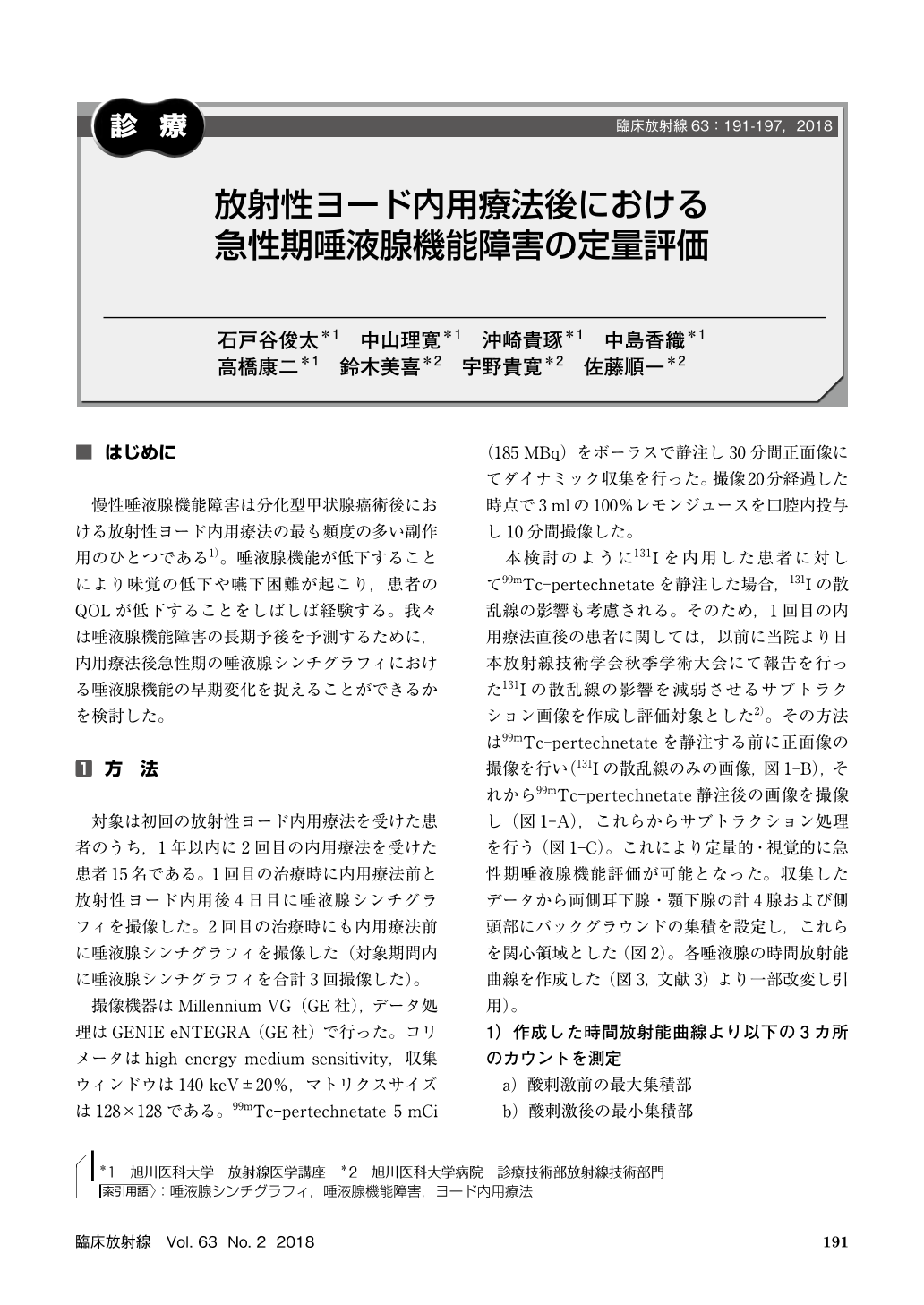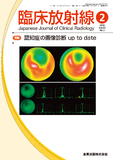Japanese
English
- 有料閲覧
- Abstract 文献概要
- 1ページ目 Look Inside
- 参考文献 Reference
慢性唾液腺機能障害は分化型甲状腺癌術後における放射性ヨード内用療法の最も頻度の多い副作用のひとつである1)。唾液腺機能が低下することにより味覚の低下や嚥下困難が起こり,患者のQOLが低下することをしばしば経験する。我々は唾液腺機能障害の長期予後を予測するために,内用療法後急性期の唾液腺シンチグラフィにおける唾液腺機能の早期変化を捉えることができるかを検討した。
Chronic salivary glands dysfunction is one of complications after radioactive iodine therapy(RIT)for thyroid cancer. The aim of this study was to predict the long-term effects of RIT on salivary gland function by early changes of salivary gland scintigraphies(SGSs). Subjects were fifteen patients who underwent RIT. SGS were performed before RIT(pre-SGS), 4 days(4-SGS)and over 6 months(post-SGS)after RIT. The maximum uptake ratio and washout ratio were quantified for the parotid and submandibular glands at each SGS. Xerostomia was assessed by the Saxon test for sialometry before and after RIT. In post-SGS, salivary glands dysfunction was observed in three patients. In 4-SGS, these three patients experienced decreases of at least one of salivary glands. 4-SGS might be shown an acute term salivary gland obstructive disorder and might be helpful in predicting the long-term effects of RIT on salivary gland function.

Copyright © 2018, KANEHARA SHUPPAN Co.LTD. All rights reserved.


